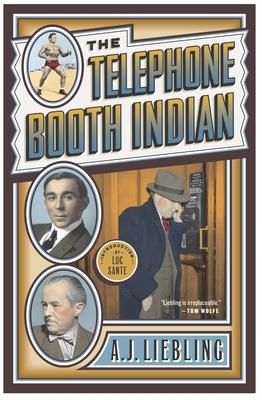
Often referred to as "Liebling lowlife pieces," the essays in The Telephone Booth Indian boisterously celebrate raffishness. A. J. Liebling appreciated a good scam and knew how to cultivate the scammers. Telephone Booth Indians (entrepreneurs so impecunious that they conduct business from telephone booths in the lobbies of New York City office buildings) and a host of other petty nomads of Broadway--with names like Marty the Clutch and Count de Pennies--are the protagonists in this incomparable Liebling work. In The Telephone Booth Indian, Liebling proves just why he was the go-to man on New York lowlife and con culture; this is the master at the top of his form, uncovering scam after scam and writing about them with the wit and charisma that established him as one of the greatest journalists of his generation and one of New York's finest cultural chroniclers.
Often referred to as "Liebling lowlife pieces," the essays in The Telephone Booth Indian boisterously celebrate raffishness. A. J. Liebling appreciated a good scam and knew how to cultivate the scammers. Telephone Booth Indians (entrepreneurs so impecunious that they conduct business from telephone booths in the lobbies of New York City office buildings) and a host of other petty nomads of Broadway--with names like Marty the Clutch and Count de Pennies--are the protagonists in this incomparable Liebling work. In The Telephone Booth Indian, Liebling proves just why he was the go-to man on New York lowlife and con culture; this is the master at the top of his form, uncovering scam after scam and writing about them with the wit and charisma that established him as one of the greatest journalists of his generation and one of New York's finest cultural chroniclers.
Paperback
$19.00